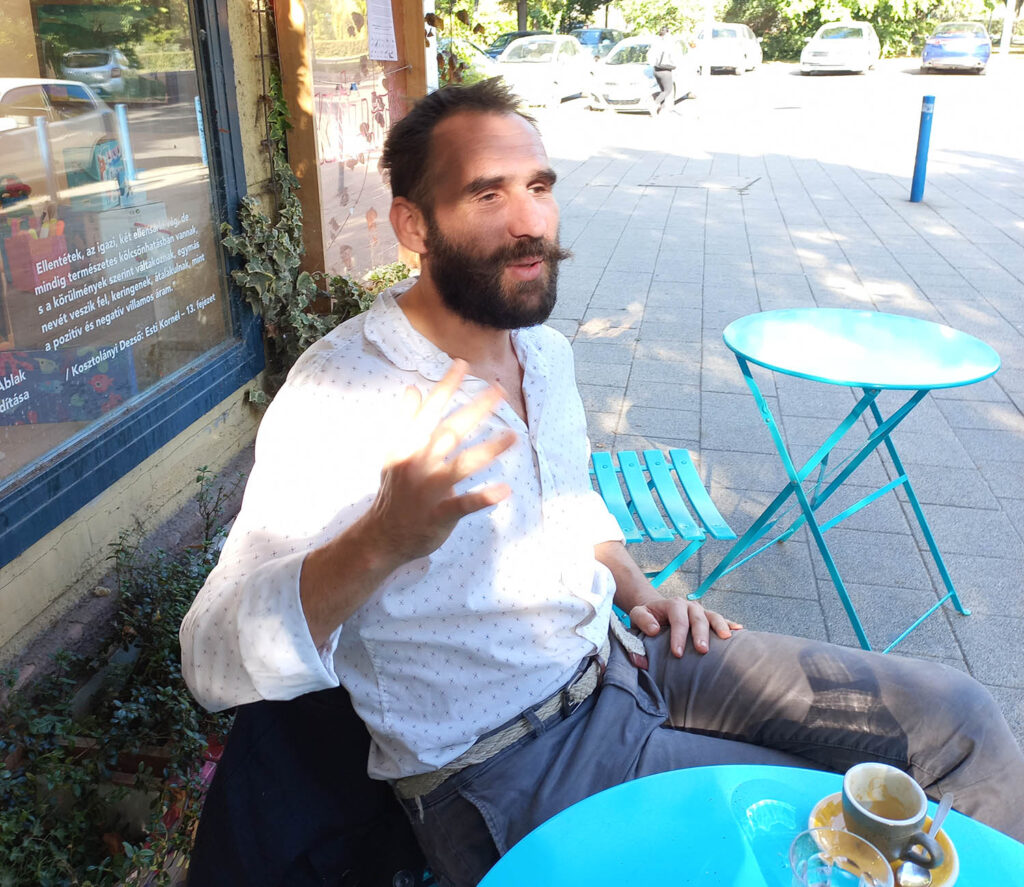By Márton Sarkadi Nagy
In April 2015 leaders of three Hungarian anti-corruption NGOs gathered in Budapest for press conference to reach cooperation agreement. Their aim was to create a practical framework for whistleblowers to come forward more easily, and inform the citizens they finally had the opportunity to do so.
In theory, Hungary has had a legal structure for whistleblower protection in place since the 1970s, but the setup didn’t convince many – neither before nor after the country’s transition to democracy. Just before the start of the 2015 initiative named BeVéd, Transparency International’s (TI) survey had shown Hungarians to be the less likely to report corruption than citizens of any other EU country. A key driver of the statistic was a fear of potential retribution.
Investigative journalism organization Átlátszó, anti-corruption NGO K-Monitor and the Hungarian chapter of TI teamed together to start BeVéd because their leaders thought some of the practical help they could provide, such as legal assistance or journalistic support in going public, could convince potential whistleblowers to come forward.
Fears of retribution
Eight and a half years later, Gábor Vágó, the former coordinator of now-dormant BeVéd, was sitting at a coffee shop in Budapest, explaining why the project didn’t turn out to be a success. He believes Hungarians, for historical reasons, prefer confidential, rather than open ways of whistleblowing.
“Throughout Hungarian history, personal sacrifices made to further common goals rarely met with positive responses,” reflected Vágó, who has founded a biodiversity start-up. “During socialism, the proper channel of taking care of problems was not through the public sphere, but through the respective party official.”
Vágó, a former Parliament member and journalist at Átlátszó, took on the BeVéd role after András Horváth, a former official at the powerful National Tax and Customs Administration (NAV), went public with his claim that the tax authority, for political reasons, was overlooking massive VAT fraud. Horváth “was smeared in the media, fired from his workplace, and his life was generally made into hell, which personally motivated me to try and protect those people who speak truth to power,” Vágó said.

“The idea was that media support was to be provided by Átlátszó, legal assistance by TI, and policy background by K-Monitor. But in practice, two types of support were needed. Financial and psychological. Which we couldn’t provide,” Vágó explained. Two tax officials who said they could substantiate Horváth’s claims asked Vágó whether BeVéd could provide salary support for five years. “Poor little NGOs weren’t equipped for that,” he added.
The demands of the would-be whistleblowers were proven to be spot-on after they decided to go public anyway, Vágó explained. One of them, István Vancsura, was then entangled in six years of legal wrangling with NAV. Though Vancsura, a lawyer by trade, ultimately prevailed in the courts, he could only endure those six years by support from his wealthy family and from starting a private legal practice. “Horváth couldn’t find a steady job since. The third person neither. No one dares to employ them, because they fear NAV,” Vágó said.

Skirting the legal minimum
This past summer a bill aiming for conformity between the Hungarian system and an EU regulation on whistleblower protection came into effect. A key player in implementing the legislation is Hungary’s Commissioner for Fundamental Rights (AJBH), an independent constitutional agency that has operated a whistleblower system since 2014.
“A specialty of the Hungarian legislation is that the commissioner provides a neutral, outward channel” for whistleblowers, Balázs Könnyid, the general secretary for AJBH wrote in an email. “After their identification, the reports of the whistleblowers, if they are asking so, are forwarded anonymously to the relevant authorities.”
Experts believe that the recent facelift of legislative environment and the work of AJBH itself are less than satisfactory. “The problem is partly structural, as [since AJBH’s inclusion in the system] the commissioner has no effective powers aside from opening the mail,” TI Hungary legal director Miklós Ligeti wrote in an email.
In theory, AJBH could investigate whether the relevant state authorities actually follow through on the reports, but it doesn’t do so, partly because the commissioner has no powers to force these authorities to do anything, Ligeti explained. “This is a case of deliberately underplanned, undersized powers, and deliberately wrong, weak rules,” he added.
An analysis of by TI, K-Monitor and the Hungarian Civic Liberties Union found the new law is skirting the minimum necessary to wriggle free from infringement proceedings brought by the European Commission for Hungary dragging their feet in implementing the EU regulation. Ligeti listed anemic protection and insufficient support to whistleblowers, as well as too many exceptions to the rule as the biggest problems.
Ligeti noted that the legal framework is inadequate in the Hungarian environment, “because it doesn’t account for the possibility of state authorities deliberately forgoing investigating whistleblower reports.”
As a base scenario, the current framework still allows for authorities to disregard reports if a whistleblower didn’t provide their name and personal details to the AJBH.
The new legislation has introduced some new protection measures for some whistleblowers. In the six months since it came into effect, AJBH received 220 reports of various import, Könnyid wrote. Meaning that there has been no substantive change in the amount – and neither the characteristics – of the reports received, he added.
Journalists more trusted than official channels
While official channels of whistleblowing seem ineffective and unpopular, many tips from members of the public still find their ways to journalists investigating corruption, who continue to break impactful stories. Szilvia Zsilák, a journalist and editor at Átlátszó has recently scored a scoop that seemed to reach everyone in Hungary, and also receive some international attention. This is no small feat if you’re investigating small-town corruption in rural Hungary.
The story, in a nutshell: a village mayor backed by the ruling party Fidesz personally won €170,000 in EU funds to build a canopy walk in his own forest. While standing on the footbridge, one could look at the trees below, in theory. In practice, after he won the money, the mayor cut down the forest to sell the wood, and the treetop walk now stands in the middle of nothing at all. The European Anti-Fraud Agency started an investigation after the story was published.

Zsilák explained that she got the tip through a chain of sources, none of whom to her knowledge thought to report it to authorities. The visual absurdity of the construct was first spotted by a blogger, who put the story on the internet. A village resident read the blog and wanted to do report the apparent misuse of funds, just didn’t know where to turn. “This resident then got in touch with someone who knew Átlátszó, and then that other person reached out to us,” Zsilák said.
“We are receiving reports [of corruption] every week,” the journalist added.
In villages and small towns of rural Hungary, many are afraid – and with good reason – to report on wrongdoing by strongmen. Especially mayors, who wield influence over the employment decisions of local administrations – key employers in villages, hard-hit by a staggering economy, Zsilák explained.
After Zsilák’s reporting went public, an employee of the local administration was apparently put under pressure simply because of reacting with a laughing face emoji to the story on Facebook. The employee recorded a phone call, in which the mayor told her to “take the laughing face down”, and to visit the mayor’s office for further talks. The employee then brought her recordings and story to national media organizations.
“Which absolutely shows that in this village, you should be afraid of reprisals,” Zsilák explained, adding, “But there are still people with balls who would stand up the power. Such as this employee, was defended by the media, and kept her job in the end.”

